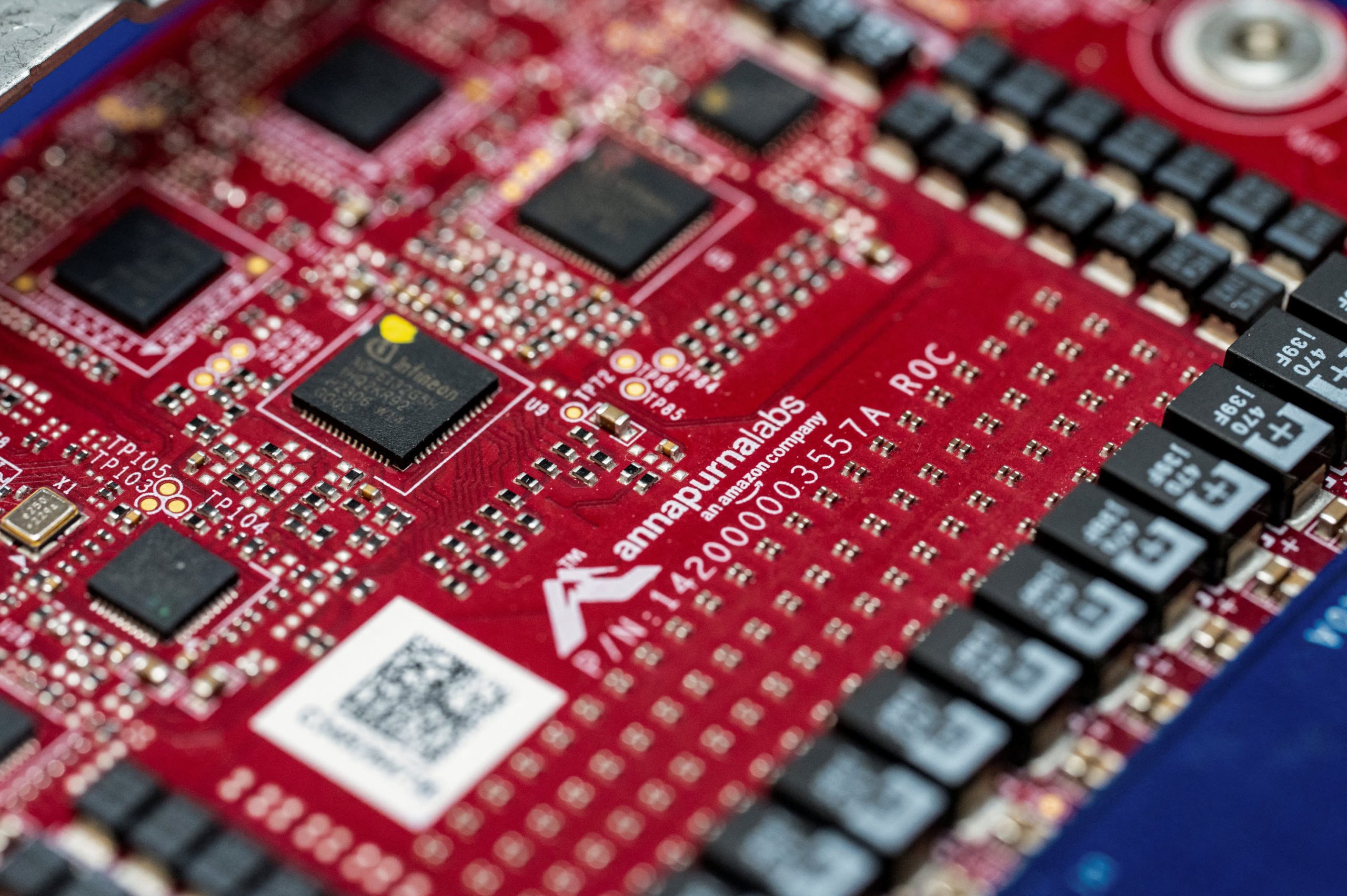U.S. President Donald Trump this weekend announced hefty tariffs on his country’s three biggest trading partners, leaving investors scrambling to position themselves for a global trade war.
Canada and Mexico face 25% duties on their exports to the U.S., with a lower 10% levy imposed on Chinese goods. Canada has already responded with retaliatory tariffs of 25% against $155 billion of U.S. goods.
Trump has, meanwhile, stated that the European Union will be next in the firing line, with the U.K. also under consideration.
Though Trump repeatedly threatened tariffs on the campaign trail, Deutsche Bank analyst Jim Reid said in a Monday note that the market had been “completely under-pricing the risks” and would now be in “severe shock.”
Among the expected short- to medium-term impacts are a slowdown in global economic growth, particularly in countries with large manufacturing sectors, a spike in oil prices, higher prices for U.S. consumers and higher-for-longer U.S. interest rates, with a stronger U.S. dollar as a result.
Outside of the U.S. and the three other economies directly involved, sectors around the world are braced for impact from the tariffs.
Here are some of the areas expected to be hit:
Automotives
Autos firms — from car brands to the makers of vehicle parts — are expected to be among the worst affected by escalating trade tensions as they represent a major area of international imports into the U.S.
Germany’s VolkswagenStellantis
The effects on stocks were immediate on Monday, with European automakers on the regional Stoxx 600ValeoForvia also tumbling on expectations of a sector slowdown.
Chip firms
Makers of chips and semiconductor equipment, ranging from Taiwan’s TSMCASML
Taiwan Semiconductor Manufacturing Co, the world’s largest chipmaker, specializes in making semiconductors for other companies, such as U.S. firms AppleNvidiaAMDQualcommIntel
ASML, meanwhile, manufactures the extreme ultraviolet lithography (EUV) machines used by many global chipmakers to print intricate designs on chips. ASML ships these tools to multiple countries, including the U.S., Taiwan and South Korea.
“The latest moves won’t do much to calm the high tensions which have hit the semiconductor sector,” Susannah Streeter, head of money and markets at Hargreaves Lansdown, said Monday.
“Companies like Nvidia
Consumer goods
For the U.S. consumer, a host of household and leisure goods made overseas could be set for price increases, from furniture and electrical appliances to clothing, video consoles, phones and toys.
Elsewhere, there will be an impact on U.S.-exported products sent to countries such as Canada which retaliate with tariffs — as well as on consumer goods firms around the world that send products across the U.S.’ borders.
One example is drinks giant Diageoweakening demand in North America.
Fintan Ryan, consumer equity research analyst at Goodbody, told CNBC that tariffs were one of the biggest challenges for the company this year as the U.S. accounts for roughly 45% of the company’s operating profit.
Around 70% of its sales in the U.S. are imports, meanwhile, including Canadian whiskey, Mexican Tequila, Scotch, and Baileys and Guinness from EU member Ireland. Diageo is due to report earnings on Tuesday.
Chinese e-retailers
Chinese companies face the highest risk from tariffs and other changes to U.S. market access, according to analysis by Morgan Stanley. Of those, hugely popular China-linked online shopping platforms such as Temu, Shein and AliExpress are set to be hard hit.
This is because Trump has halted a trade exemption known as “de minimis,” which had allowed exporters to ship packages worth less than $800 into the U.S. duty-free.
U.S. officials have claimed the exemption allowed Chinese e-commerce companies to undercut their competitors and flagged safety concerns due to their “minimal documentation and inspection.”
The U.S. processed more than 1.3 billion de minimis shipments in 2024, according to data from the U.S. Customs and Border Protection agency.
Without the exemption, high-volume, low-cost products from China’s online retailers will face duties, potentially pushing up the end price of the items and causing a fall in demand.
Basic materials and industrials
Basic materials companies — which explore, extract and process products including metals, wood, glass, plastic, coal and precious stones — are set to face a drag from a weaker global growth outlook, Dan Boardman-Weston, CEO at BRI Wealth Management, told CNBC’s “Street Signs Europe.”
Europe’s Stoxx 600 mining index was around 1.5% lower by Monday afternoon, while the industrials index, which includes machinery producers, fell 1.7%.
The economic impact is expected to felt particularly hard in Canada, with analysts at Scotiabank saying Monday that tit-for-tat tariffs with its top trading partner and closest ally were the “worst possible scenario for Canada.”
Its economy and productivity are weak, debt is high and trade diversification is low, the analysts added, singling out the country’s already-declining softwood lumber industry as particularly at risk.
Green energy
Renewable energy producers around the world could also get hit by tariffs, with China, Mexico and Canada all key bases for the production of machine parts used for solar, wind and other green technologies.
In a Sunday statement, the American Clean Power Association warned of the negative impact on the green energy industry, citing increased costs of energy production due to Canadian and Mexican machinery production.
More broadly, Morningstar analysts warned in a December note that tariffs could be detrimental to the energy transition.
“Since tariffs are ultimately taxes paid by consumers, they could lead to higher inflation and interest rates, as well as slower growth. If this happens, it will undermine the profitability of solar and wind installations, which depend on long-term project finance and have been hurt by high interest rates in recent years,” they said.
— CNBC’s Ganesh Rao, Michael Bloom, Annie Palmer, Sam Meredith and Ryan Browne contributed to this story.
International: Top News And Analysis
Read the full article <a href="Read More” target=”_blank”>here.






